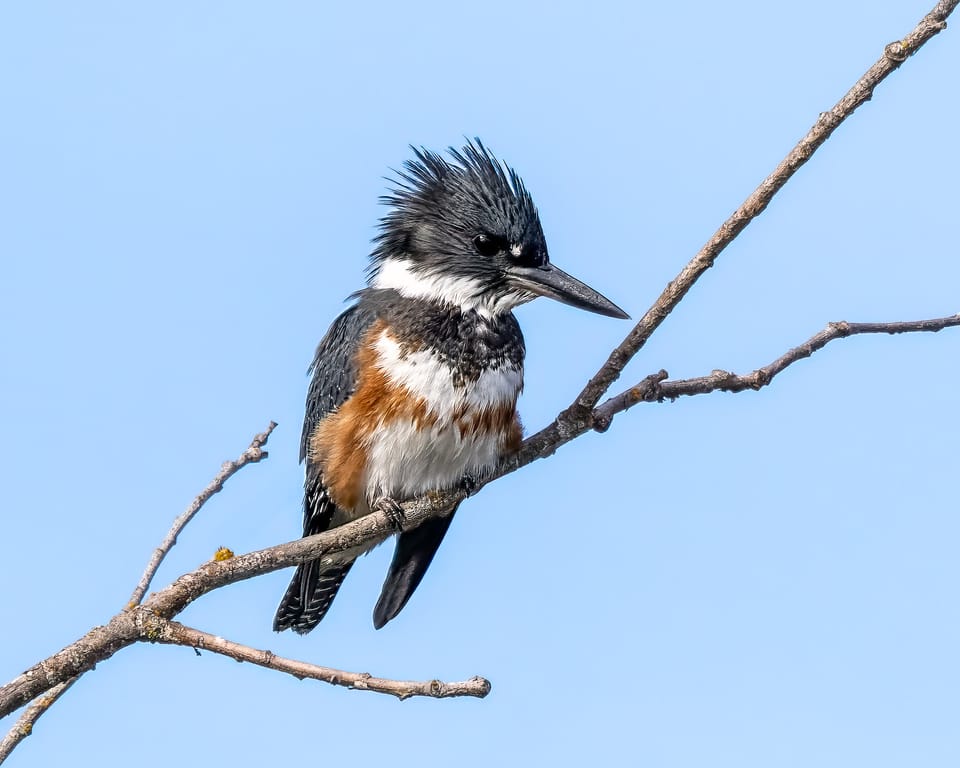EcoWest News, July 15, 2025

Welcome to EcoWest News, a weekly round-up of news and resources that you can put to use in addressing environmental issues and protecting the wild in your community.
Across the West
A sand-extraction company hopes to obtain government approval for its mining in Manitoba by seeking First Nations support and drilling less wells initially. [CBC]
The chance of an Arctic oil spill is increasing as melting ice extends the Hudson Bay shipping season. The Churchill Marine Observatory’s ability to perform controlled experiments in natural Arctic waters plays an essential role in addressing the risks. [CBC]
Contamination from forever chemicals and asbestos is a concern on the Moose Jaw Canadian Forces Base: “I have lived and worked in buildings, sent my children to daycares and schools and used facilities that I now know are directly on contamination sites or within areas where contamination sites exist … No one told us about the risks we were exposed to daily.” [The Narwhal]
A French environmental television program will be in Saskatchewan this summer to look at the pros and cons of using dessicants, chemicals used to dry crops such as lentils before harvest. [The Western Producer]
Edmonton’s Urban Forest Ambassador Program will train residents to detect threats to urban trees. [CTV News]
“As urban sprawl threatens the Okanagan’s rare grasslands, a proposed wildlife corridor offers a glimmer of hope … the corridor is a chance to protect some of the remaining land where medicinal plants can still be found, where mule deer and elk feel safe enough to have their babies, where wildlife has room to move north and south relatively unencumbered.” [The Narwhal]
The Port Alice pulp mill is just one example of the problem facing BC taxpayers who are left bearing the cost of cleaning up abandoned industrial sites. [The Tyee]
Across Canada
There are ways to protect our homes from tornadoes, flooding, and extreme heat. Canada also needs flood mapping and early warning systems. [CBC] “There are many smart engineers and government officials who know what to do, but we need to support and invest in the projects to adapt to this new reality.” [CBC]
“There are reasons to question the soundness of fossil fuels on a purely financial basis.” In contrast, an east-west clean energy system could make Canada an energy superpower. [The Conversation]
Around the World
Solar power became the biggest source of power in the European Union in May with 13 EU countries recording their highest-ever solar power contribution. Wind power set new monthly records in May and June. [Ember Energy]
Making a Difference
A 300-unit affordable housing complex in California uses mycelium, the root-like structures from which mushrooms grow, as a key building material. [Myco Stories]
Vancouver Island Health hopes to replace 75% of the 850,000 disposable gowns used annually with reusable cloth isolation gowns, a savings of $2 million and the elimination of 77,000 kg of carbon dioxide emissions annually. [Island Health]
A pilot, who loved his job, quit flying because of increasing anxiety about the impact his industry was having on the planet. He’s now organizing assemblies for aviation workers to come up with solutions. [The Guardian]
“When offered a 1-in-10,000 chance of winning $1,000 instead of a guaranteed 10 cent refund, people recycled 47% more bottles...at no extra cost to local governments.” [Anthropocene]
Nature’s Wonders
A photographer follows a pair of bald eagles as they raise their young and practise tough love when it’s time for the young to move out on their own. [The Narwhal]
Urban cemeteries are overlooked biodiversity hubs. More than 240 animal and plant species can be found in the Vienna Central Cemetery. [BBC]
Photo credit: https://www.flickr.com/photos/apmckinlay/54643131765
EcoFriendly West informs and encourages initiatives that support Western Canada’s natural environment through its online publication and the Nature Companion website/app. Like us on Facebook, follow us on BlueSky, X, and Mastodon, or subscribe by email.

Member discussion